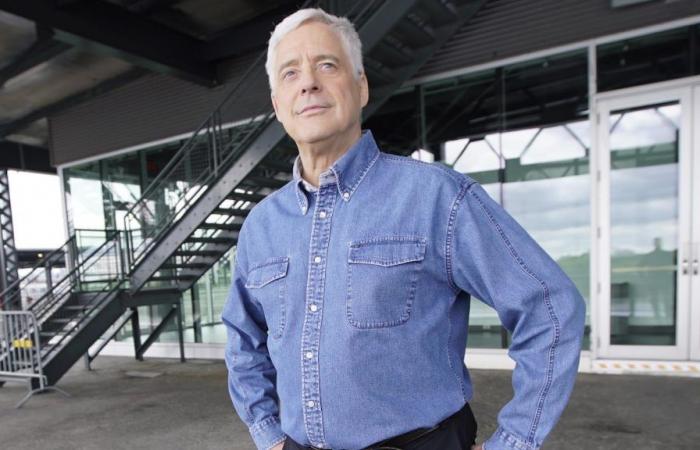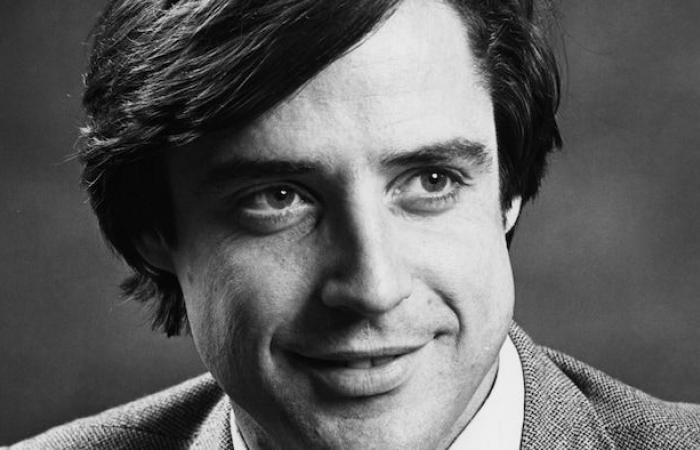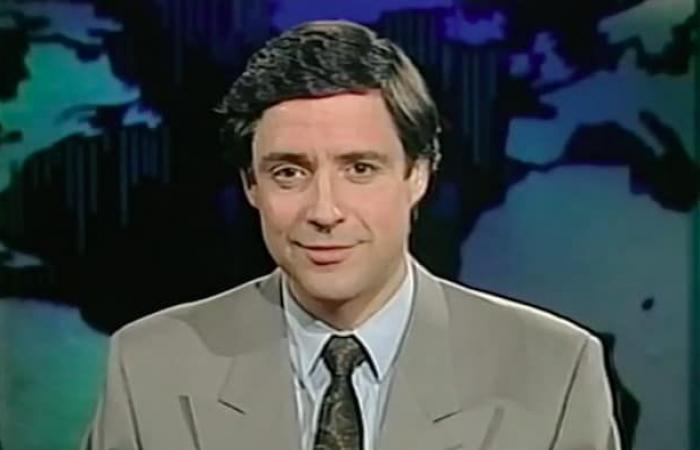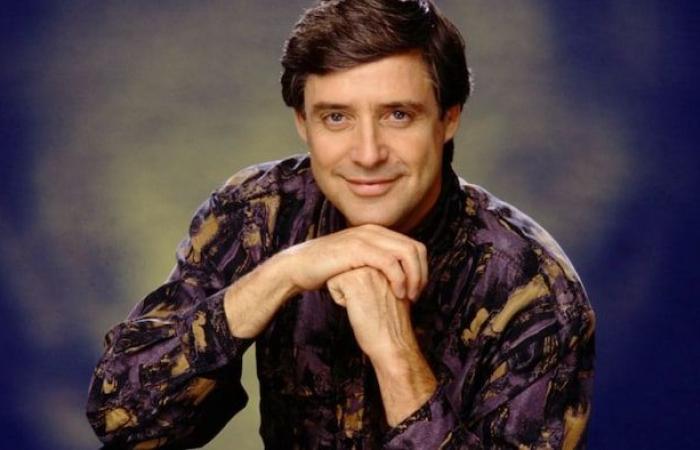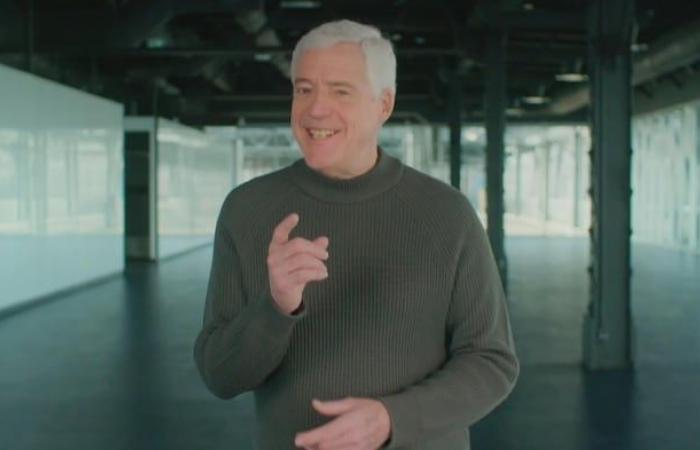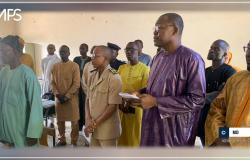In a long interview, the science and information enthusiast looked back on his rich career, on his former ambitions as an actor, on his dyslexia, on the underside of live broadcasting and on the major events he covered, from from the explosion of the Challenger shuttle to the Polytechnique massacre, including numerous scientific advances.
Charles Tisseyre was born on July 15, 1949 in Montreal, to Pierre Tisseyre, legal advisor, journalist and literary editor, and Michelle Tisseyre, journalist and star host of Radio-Canada for more than 25 years.
With such family background, one might have thought that Charles Tisseyre’s path was mapped out in advance, but this is not the case.
A difficult school career weighed down by dyslexia
Young Charles encountered his first pitfalls at small school, where he had great difficulty keeping up in class. I had difficulty learning to read and write. When I arrived in kindergarten, I saw my friends progressing and I couldn’t do it.
he remembers. You are traumatized by this. Very quickly, you think it’s because you’re not smart.
Fortunately, he was cared for by a dedicated specialist, who taught him reading and writing intensively. This leveled the playing field for a while, but at age 12, he was preparing to repeat third grade for the second time. The official diagnosis had not yet been made, but Charles Tisseyre suffered from dyslexia.
Open in full screen mode
Little Charles Tisseyre, in the 1950s.
Photo: Charles Tisseyre (Personal photo)
My parents transferred me to Stanislas and I arrived in Roland Boutaric’s class. It was a cosmic change. He had such authority over us that you could have heard a pin drop, he explains. But because he was a very good teacher, a great popularizer, he was fascinating to listen to.
This discipline helped the young man to persevere in his studies, but a few years later in high school, he once again faced failure. In desperation, his parents transferred him again, this time to the Institute of General Culture, directed by Marcel Alexandre.
He accepted me on one condition: “we will work hard to help you succeed, but you have to give the best of yourself.” He shook my hand and my life changed forever
explains the host.
Dyslexia followed him throughout his life, but Charles Tisseyre got through it by redoubled his efforts. At Radio-Canada, he always walked around with a dictionary in hand and constantly reread himself so as not to make mistakes.
Dyslexics have a superpower: work. The more you work, the more you will improve and the more successful you will be.
Open in full screen mode
Charles Tisseyre in 1970, at the age of 21
Photo: Radio-Canada
Breaking down a closed door
After his secondary studies, Charles Tisseyre considered two career paths: teacher or actor. However, under pressure from his father, he first obtained a degree in law, a field which quickly put him off due to its very dry nature.
It was in his early twenties that he began to seriously consider a career in journalism, at Radio-Canada, a place he admired having spent a lot of time there with his mother as a child. But the public broadcaster was not going to roll out the red carpet for him.
I went to the front door myself and said I wanted to apply, even though there was no position posted
he says. I applied, but nothing came of it, it dragged on for months and months.
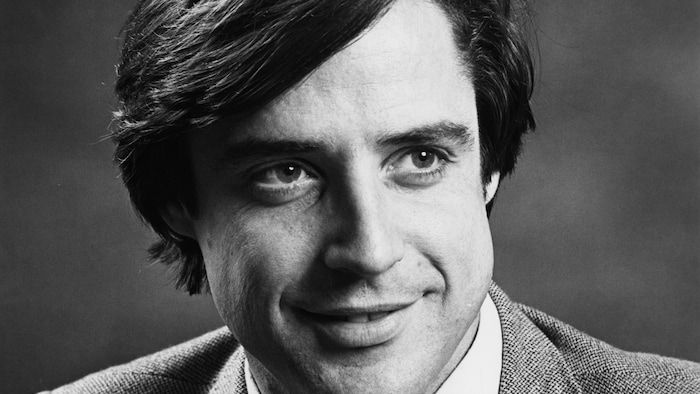
Open in full screen mode
Charles Tisseyre, at the start of his career at Radio-Canada, in the 1970s.
Photo: Radio-Canada
Luck finally struck a few years later, when the show’s editor-in-chief Here, where his former girlfriend worked, referred him to Radio-Canada International, for a position as announcer-producer. When he auditioned, the chief announcer replied: It doesn’t work at all, first of all, your voice is too nasal
.
Six months later, after doing a little theater and taking reading aloud workshops, he got the job. His first day on the job was June 18, 1974, 50 years ago.
I had a one-hour live show, five days a week, broadcast to Africa. I produced the show and hosted it. It was great training, I learned everything
, he remembers. He spent four years at Radio-Canada International, before accepting a position as a journalist in the news room.

Open in full screen mode
Charles Tisseyre in the news room in 1978.
Photo: Radio-Canada
The Challenger shuttle explosion : the birth of a popularizer
Between 1978 and 1986, Charles Tisseyre was assigned to regional and national news, while producing several scientific reports. It was in this chair that his career took an unexpected turn, on January 28, 1986.
This date has remained marked in history as a bitter failure of American space exploration: the day when NASA’s space shuttle Challenger disintegrated in mid-flight 73 seconds after takeoff, a tragedy which cost life for seven astronauts.
It was there that we discovered that I perhaps had a talent for animation, explains the journalist.
I got up to watch the shuttle launch, because I knew the first few minutes were critical. And then I saw it explode. I was so affected that I sat down
he remembers.
Noticing his keen interest in the unfolding tragedy, his boss Claude St-Laurent then told him Charles, you go shave, borrow a tie and go on the air.
Alongside Céline Galipeau, Charles Tisseyre gave a real lesson in popularization, demonstrating the full extent of his encyclopedic knowledge.
After a few hours on the air, all the employees in the news room spontaneously began to applaud the two colleagues. I amazed my colleagues because I had been a space geek for years, I had read everything about the shuttle
he remembers.

Open in full screen mode
The Challenger shuttle exploded in mid-flight on January 28, 1986.
Photo: Radio-Canada
The Polytechnique massacre and the takeoff of the Discovery shuttle
Shortly after this episode, Radio-Canada entrusted Charles Tisseyre with the co-hosting of Montreal tonighta new information magazine presented at the start of the evening, which he piloted with Marie-Claude Lavallée from 1986.
During this period, he interviewed several big names on the cultural scene, such as Diane Dufresne, Céline Dion and Gérard Depardieu. A mark of trust that senior management would renew three years later by asking him to host the prestigious TV news to 10 p.m. on weekends.

Open in full screen mode
Charles Tisseyre on the show “Montréal ce soir”, in 1986
Photo: Radio-Canada / KARSENTY, Jean-Pierre
On Thursday December 6, 1989, while he replaced Bernard Derome for the TV news this week, Charles Tisseyre was once again plunged into the heart of a tragedy: the Polytechnique massacre, which cost the lives of 14 women. There were about ten people in the news room and it was chaos. People were screaming. Even the director of the show was out of sorts
he remembers.
h. It went well. Usually, I respect each other’s roles, but here I understood that I had to intervene, because it was almost anarchic.”,”text”:”I understood that as host, I had to take control, because we had special coverage that started at 8 p.m. It went well. Usually, I respect each other’s roles, but here I understood that I had to intervene, because it was almost anarchic.”}}”>I realized that as host, I had to take control, because we had special coverage that started at 8 p.m. It went well. Usually, I respect each other’s roles, but here I understood that I had to intervene, because it was almost anarchic.
At the opposite end of this dramatic event, the host had the chance to cover live what remains one of his fondest career memories: the takeoff – this time successful – of the Discovery shuttle, on January 22, 1992. at Cape Canaveral, Florida.
While waiting for takeoff, Charles talks with astronaut Steve Maclean on the roof of the NBC studios. Technical problems in Montreal force him to fill the time, because the planned reports cannot be broadcast. He will have a fascinating interview with the astronaut, who will be dazzled by the journalist’s in-depth knowledge.
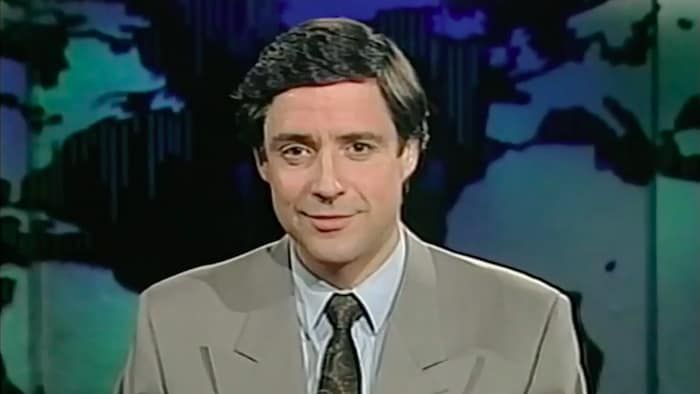
Open in full screen mode
Charles Tisseyre while he hosted Téléjournal on December 1, 1990.
Photo: Radio-Canada / Téléjournal
32 years of pure happiness Discovery
Five months after this magical moment, Charles Tisseyre inherited Pierre Maisonneuve’s chair as host of the science show Discovery, a position he had been eyeing for a long time. The journalist then had the impression of reconnecting with his youthful ambitions, teaching and acting, he who had already been offered a role in the cinema by the French director Roger Vadim.
I wanted to be an actor or a teacher, and that’s what I’m doing now. I’m in the limelight, in front of the camera and I also have a role [éducatif]. Sometimes I pinch myself and say to myself “damn you lucky”
he summarizes.
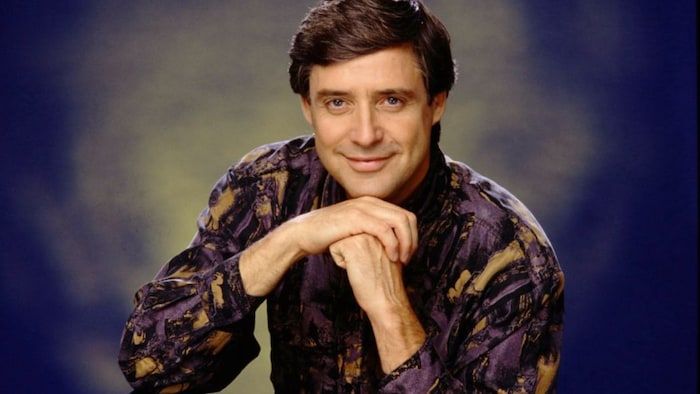
Open in full screen mode
The host of “Discovery “Charles Tisseyre” in 1994
Photo: Radio-Canada / Jean Bernier
Space, new methods of reproduction, the manipulation of the human genome, the climate and the role of hydrocarbons in its warming… So many issues that Charles Tisseyre has seen evolve over the years and which have been an infinite source of fascination for the science freak.
The great thing about science is that there is something new all the time. You never have a boring day.
When I started at Radio-Canada, there was maybe one scientific news story per month. Now it’s one every day or several times a day. There has been exponential progression
he says.
Retirement? Not for now
Almost 75 years old, Charles Tisseyre knows that he will eventually have to pass the torch, especially since he had a first stroke in 2022, leaving him with some memory lapses, especially when it comes to names.
My risk of having another stroke is real, but it is minimal. I am fit and there is no medical reason why I cannot work
he explains.
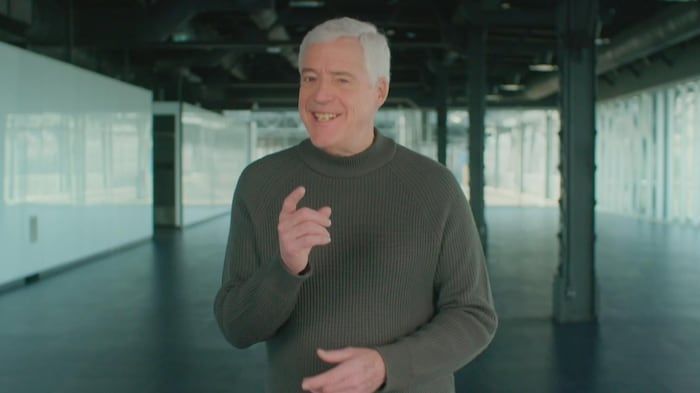
Open in full screen mode
Charles Tisseyre
Photo: Radio-Canada
Still driven by the same passion, he is not ready to retire. I’m taking it one year at a time, I signed my contract for the next year. It’s very difficult to leave a job as a science journalist because it’s so exhilarating, interesting
he summarizes.
And if I had to leave – obviously I’m going to leave one day – I think I would go back to school. I like to cultivate myself and learn things.

